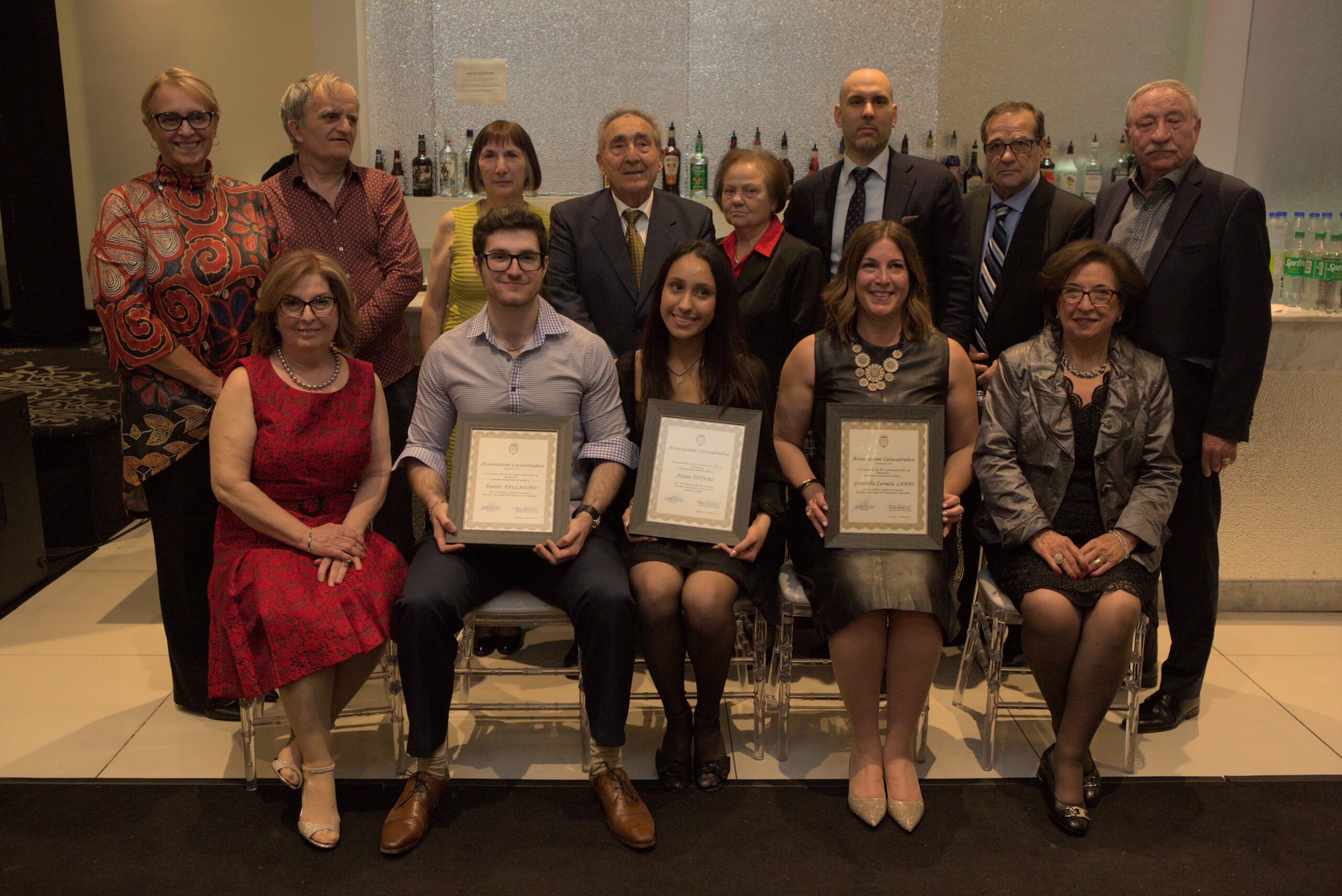Many of Montreal’s Italian associations are disbanding due to a decline in communal participation, yet one in particular thrives amidst adversity.
On Nov. 11, 2023, sounds of laughter, clinking glasses, and gleeful reminiscing danced across the walls at Roma Receptions as a room of nostalgic countrymen honoured their cultural heritage and celebrated l’Associazione Casacalendese di Montréal’s 99th anniversary.
During a speech, Jon Carlo Santangelo, the group’s president, highlighted the strength of membership and attendance within the association, praising the community and wholly attributing their successes to the people’s efforts. “We are 100 percent self-financed… we’re not open to the public, and we are restrictive in membership, and there is a stigma that these associations are your grandparent’s associations. But in the last two years, we have been building ourselves up, and people are joining and coming back around after Covid. Last year was our first banquet post-Covid, and we had 120 people. We had 175 this year,” he said.
While members of this Montreal-based Italian association celebrate their collective prosperity with food, wine, music, and good company, members of many other associations within the city have been adapting to a life devoid of such celebrations.
Most associations in Montreal representing a specific Italian town/area were founded between the 1940s and the 1980s to financially support Italian immigrants with no ties to this city, allowing them to bond with people from their hometown. Not only do the members of Italian associations share regional ties, but many are genetically linked and discover deeper genealogical roots through the exchange of cultural insight and anecdote.
Today, Montreal’s Italian community is in a transitional period as the older generations that have defined the community and held such an essential role in its survival are passing away. With their passing comes the passing of traditions and practices that the younger generations are not actively preserving. As a result, membership rates across Montreal have drastically decreased in the last 10 years, with eight associations from the Southern Italian region of Molise alone shutting down in a period of five years.
While Santangelo’s association celebrated in November, Angela D’Orazio, a former member of the Grupo Recreativo Montenerodomo from the province of Chieti, Abruzzo, is still processing the demise, after 51 years, of her association that once hosted its own gathering in the basement of the Mount-Carmel Church. “We threw a last party [a few months ago] and the turnout was amazing; it was one of our biggest turnouts. You know, we used to go to halls, get dressed up, buy new outfits, gun blazing, and here we were, in the basement of a church. Everyone knew it was the last meeting, but all the old members came—they came in wheelchairs—and I was in tears,” D’Orazio said..
Mimma Scarola, a former member of l’Associazione Maria Santissima di Merllitto from the region of Grumo, Appula in Bari, echoed D’Orazio’s sentiments. Her association shut down 10 years ago, after participation had been in steep decline during the last five years of its existence. “My family was so involved, so our younger generations loved to go—we enjoyed it. My kids still ask me about it now, but it wasn’t like that for everyone. There were a lot of people from the association who didn’t participate as much, and you couldn’t even get them to come to the parties. When they [older members] started dying out, their kids didn’t come,” Scarola said.
Francesca Sacerdoti, assistant director at the Congrès National des Italo-Canadiens (région Québec), has seen a substantial increase in interest regarding the Italian culture in Montreal, but not necessarily from Italians themselves. Being an organizer of the annual Italfest, a two-week celebration of Montreal’s Italian heritage in the heart of the city, Sacerdoti noted that the festival is growing in attendance every year. However, she acknowledged that members of the Italian community are generally less active than they used to be.
Sacerdoti’s colleague, Terry Lorito, believes the cause for declining participation is that the younger Italian generations are “too integrated into our society.” “They’re Canadians, they’re Quebecers, and their Italian comes third,” Lorito said.
Despite the dwelling concerns, President Santangelo has high hopes for the future of l’Associazione Casacalendese di Montréal. “As long as the Italian identity is alive, people will want to flock to it, but we need a rebirth, and I think that’s what we’re successful in with the association.” The association brings in youthful participation through their scholarship program. They also encourage families to attend events by blending the music at parties for the young and old, marketing their celebrations across social media, and tailoring their efforts towards the future. “I think if we can keep it real but pivot just a little bit, then I think we should be okay,” he concluded.
